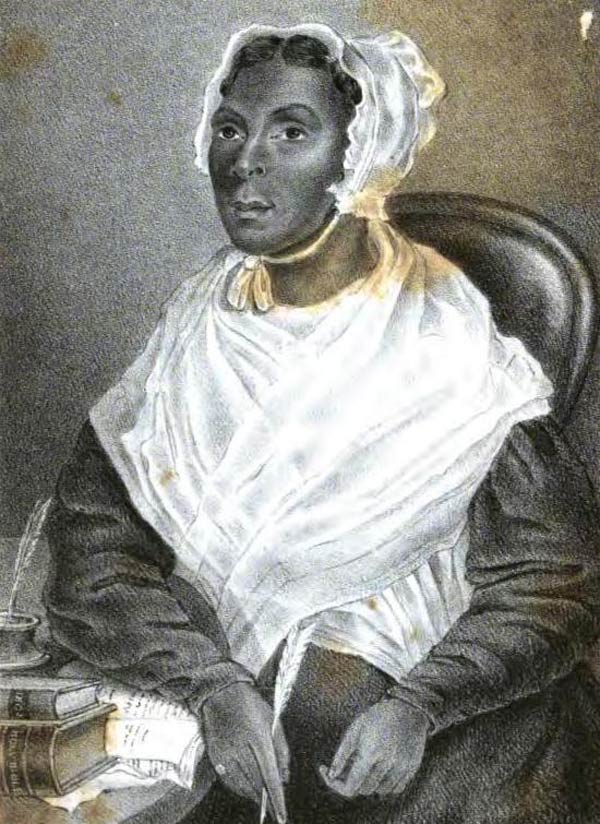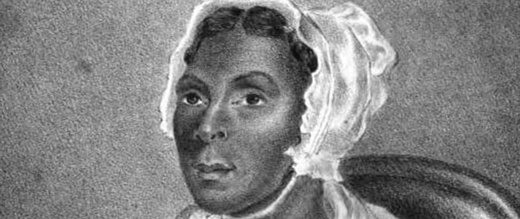The views expressed in our content reflect individual perspectives and do not represent the official views of the Baha'i Faith.
I’d like to introduce you to a few women—who, through their amazing achievements, became signs of guidance, power and accomplishment.
The Baha’i teachings tell us that our male-dominated history books have left out some of these women, and encourages us to recognize them for their artistic merit, their incredible scientific minds and even their boldness and valor in combat:
History records the appearance in the world of women who have been signs of guidance, power and accomplishment. Some were notable poets, some philosophers and scientists, others courageous upon the field of battle. – Abdu’l-Baha, The Promulgation of Universal Peace, p. 74
Most were remarkable for their accomplishments in an era when a woman’s place was largely restricted to the home. This series will introduce you to some female trailblazers—who believed and fought for women’s rights even though they lived during times when the things they accomplished were totally at odds with society’s expectations. They come from all racial backgrounds, all religions and all cultures—but they have character traits and virtues we could all emulate. Today, let’s meet a woman whose faith gave her wings.

Jarena Lee
Jarena Lee felt called to preach the word of the Lord. She told her pastor, Bishop Richard Allen, founder of the African Methodist Episcopal (AME) Church, that she’d heard voices telling her to “Go preach the Gospel! Preach the Gospel; I will put words in your mouth.” But Bishop Allen told her that it was against church doctrine for women to preach. She replied, “If the man may preach, because the Savior died for him, why not the woman, seeing he died for her also? Is he not a whole Savior, instead of half of one?”
This was pretty audacious back in 1807. Women weren’t supposed to speak in public, especially not in the church, and not in front of mixed audiences, either, whether mixed by gender or race. So Bishop Allen refused to grant her request.
Lee married, had children, was widowed. But she never lost her devotion to her faith, or her conviction that she was meant to spread God’s word. Then came a day in 1819 when a visiting preacher stopped in the midst of his sermon. He seemed flummoxed, unable to go on. After a few moments of waiting, and realizing he couldn’t continue, Lee stood up, faced the congregation, and proceeded to fill the silence by completing the minister’s homily.
Moved by her spirit and her eloquence, Bishop Allen recalled her fervent insistence from years back that she’d been called to preach, having gone so far as to admonish him, “Did not Mary first preach the risen Savior?” Rather than chastise her for being impertinent, he instead authorized her to continue to teach the Gospel.
Lee became America’s first itinerant female preacher. She covered thousands of miles on foot, suffering much ridicule and mistreatment due both to her gender and race. In all, she gave a total of 178 sermons. Lee was also an active abolitionist.
Though she died penniless in the 1850s, yet she left a rich legacy. Her complete trust in God’s protection as she went forth facing the dangers of racial and gender animosity, even going to preach in slave states where her safety and indeed her very life became infinitely more precarious, can serve as an example to us all. To learn more about her inspirational story, you can read her first-ever autobiography by an African-American woman: The Life and Religious Experience of Jarena Lee.
Initially, it may seem odd to read about the courageous exploits of a Christian preacher here on a Baha’i website—but Baha’is believe that all religions teach the same essential truths:
The foundation of all the divine religions is one. All are based upon reality. Reality does not admit plurality, yet amongst mankind there have arisen differences concerning the Manifestations of God. Some have been Zoroastrians, some are Buddhists, some Jews, Christians, Muslims and so on. This has become a source of divergence, whereas the teachings of the holy Souls Who founded the divine religions are one in essence and reality. All these have served the world of humanity. All have summoned souls to peace and accord. All have proclaimed the virtues of humanity …. If we abandon these timeworn blind imitations and investigate reality, all of us will be unified. No discord will remain; antagonism will disappear. All will associate in fellowship. All will enjoy the cordial bonds of friendship. The world of creation will then attain composure. – Abdu’l-Baha, The Promulgation of Universal Peace, p. 345.
To me Jarena Lee was, as the Baha’i teachings describe, a contented soul:
When the soul’s will has vanished and disappeared in the Will of God, it will become God’s will. Its satisfaction will be God’s satisfaction. Then the veils shall be removed and duality will pass from the reality of the heart. Then the sign of contentment appears in the soul and because of this satisfaction with the decree of its Creator and its submission to the commands of its Maker, it is referred to as the contented soul. – Abdu’l-Baha, Planes of the Soul, provisional translation.
To become such a contented soul requires us to pray and seek God’s assistance. This excerpt from a Baha’i prayer may help bring that assistance to your soul:
Aid me, O my Lord, to surrender myself wholly to Thy Will, and to arise and serve Thee, for I cherish this earthly life for no other purpose than to compass the Tabernacle of Thy Revelation and the Seat of Thy Glory. Thou seest me, O my God, detached from all else but Thee, and humble and subservient to Thy Will. Deal with me as it beseemeth Thee, and as it befitteth Thy highness and great glory. – Baha’u’llah, Gleanings from the Writings of Baha’u’llah, pp. 311-312.

















Comments
Sign in or create an account
Continue with Facebookor